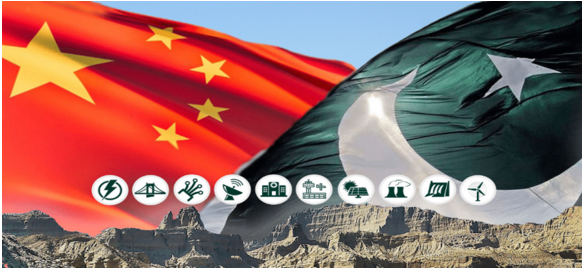آئی این پی ویلتھ پی کے
Farooq Awan
Pakistan has intensified its development and economic cooperation efforts with China, Qatar and the United States through a series of engagements, reviews and agreements aimed at strengthening investment, expanding technical collaboration and unlocking opportunities for long-term sectoral development. According to the Monthly Development Update for November 2025 issued by the Ministry of Planning, Development and Special Initiatives, the engagements held in October indicate deepening cooperation with key global partners across industry, agriculture, higher education, minerals and digital services.
The report highlights that a review meeting on China–Pakistan Economic Corridor (CPEC) Phase-II was held on 8 October 2025, following the 14th Joint Cooperation Committee (JCC) meeting. The Ministry of Planning directed federal ministries and divisions to prepare new initiatives aligned with the expanded focus areas agreed under CPEC Phase-II. The document notes that the review stressed the need to fast-track progress in Special Economic Zones and ensure that projects deliver long-term public benefits.
The 14th JCC is viewed as the beginning of a new phase of CPEC cooperation, with the 15th JCC scheduled to take place in Pakistan next year to coincide with the 75th anniversary of Pakistan–China diplomatic ties. The Monthly Development Update adds that CPEC Phase-II covers agriculture, industrial development, information technology, people-to-people exchanges and youth skill enhancement. Pakistan also plans to benefit from China’s experience in uplifting less-developed regions by adopting a “Livelihood Corridor” model.
An MoU has been signed between the Ministry of Planning and China’s Development Research Center to support the design of this approach and guide efforts to strengthen Pakistan’s export potential. The document also outlines expanding cooperation with Qatar through a meeting between the Ministry of Planning and Digital Nexus, a firm facilitating investment opportunities for Qatari and Chinese enterprises. Digital Nexus proposed a digital investment platform to link more than 100 Chinese companies with opportunities in Pakistan, particularly in minerals such as bauxite and sea salt.
It also recommended introducing an investment insurance mechanism to protect foreign investors. Discussions are underway to formalise the partnership through an MoU. The Monthly Development Update also records progress in Pakistan’s academic engagement with the United States. A consultative meeting between the Ministry of Planning and the US Embassy focused on reviving and expanding the US–Pakistan Knowledge Corridor.
The discussions centred on scholarship opportunities, doctoral research and advanced training placements for Pakistani students in American universities. The Knowledge Corridor initiative is aimed at strengthening human capital development and widening access to high-quality education in priority academic fields. The report notes that the Ministry of Planning considers cooperation with China, Qatar and the United States critical for advancing national development objectives.
These engagements support Pakistan’s priorities in industrial growth, digital transformation, export competitiveness and human capital improvement. The Ministry emphasises that global partnerships are vital for attracting investment, accessing modern technologies and securing technical expertise for large-scale development initiatives. According to the Monthly Development Update, the government is accelerating follow-up actions with partner countries to ensure that proposed collaborations move toward formal agreements and operational programmes.
Increased cooperation with international partners forms part of the broader strategy to improve productivity, strengthen connectivity and promote sustainable growth across key sectors. The report concludes that Pakistan’s engagements with China, Qatar and the United States during October demonstrate a strong push to expand international partnerships. The government expects these interactions to enhance investment flows, improve sectoral performance and contribute to stronger development outcomes in the years ahead.

Credit: INP-WealthPk



